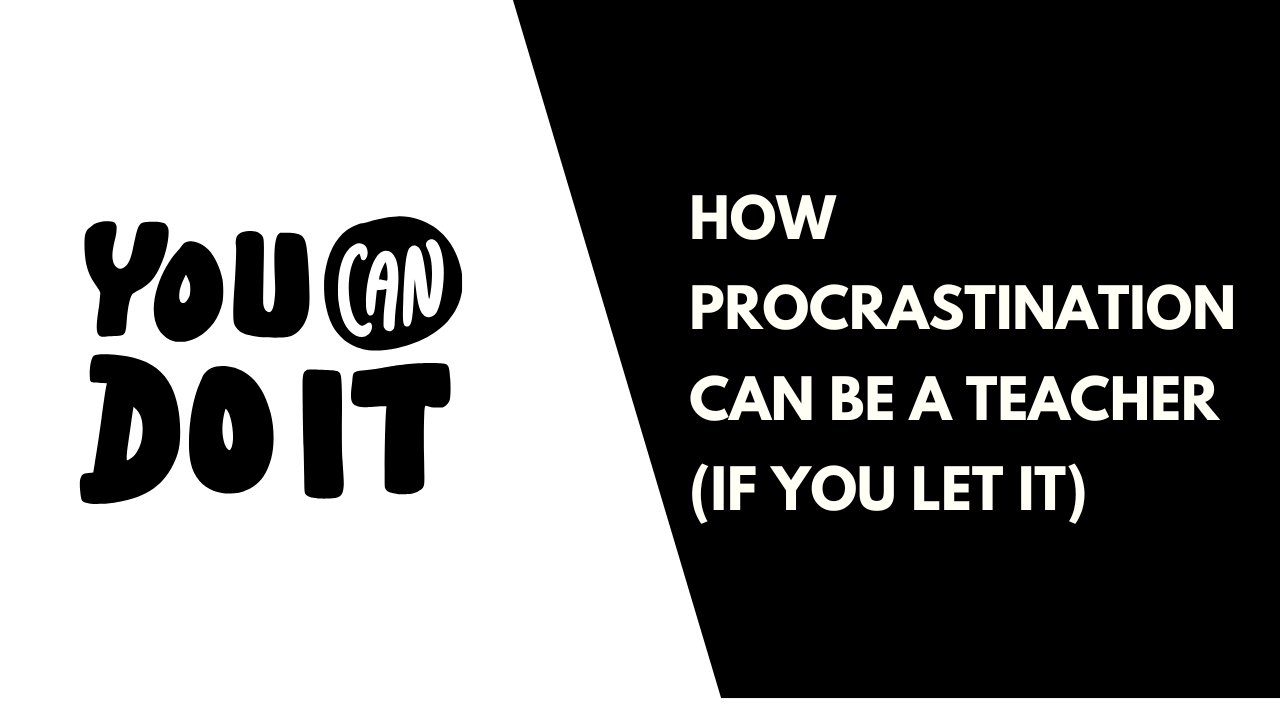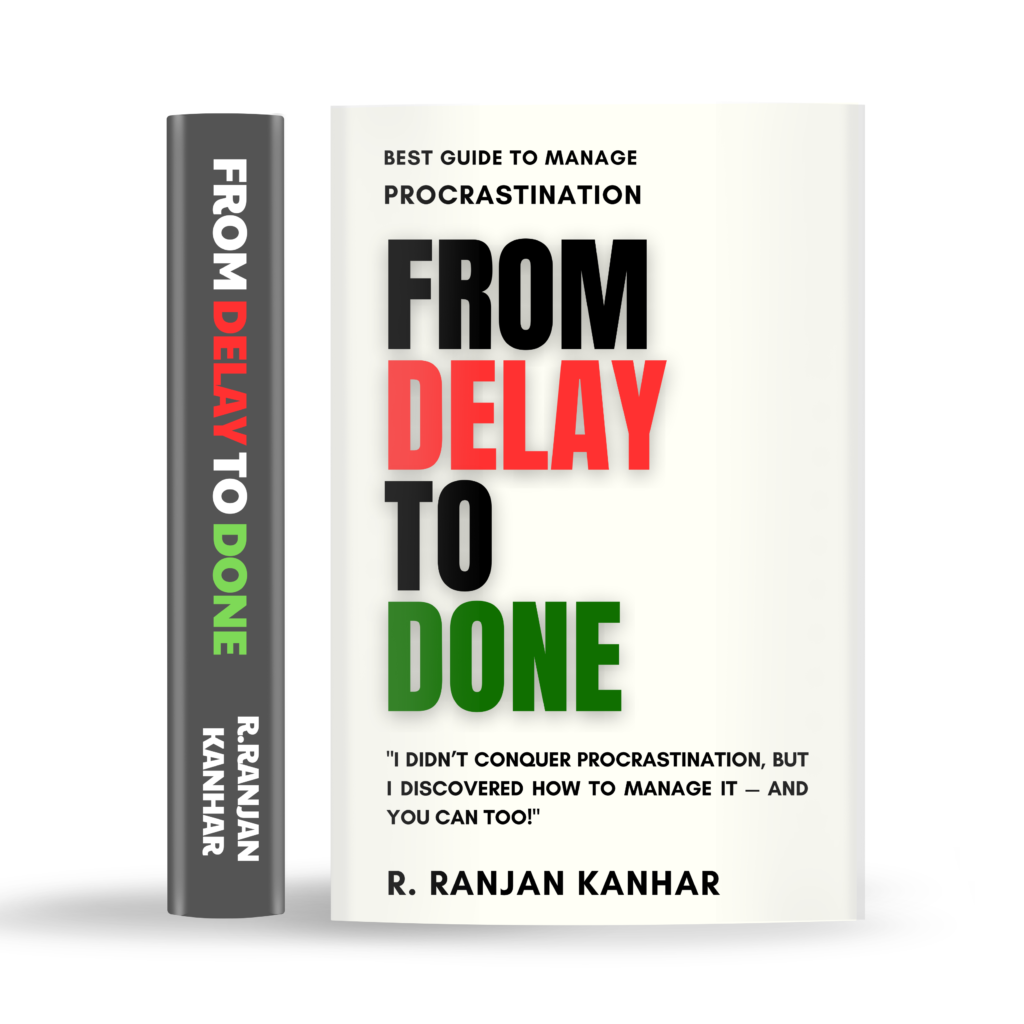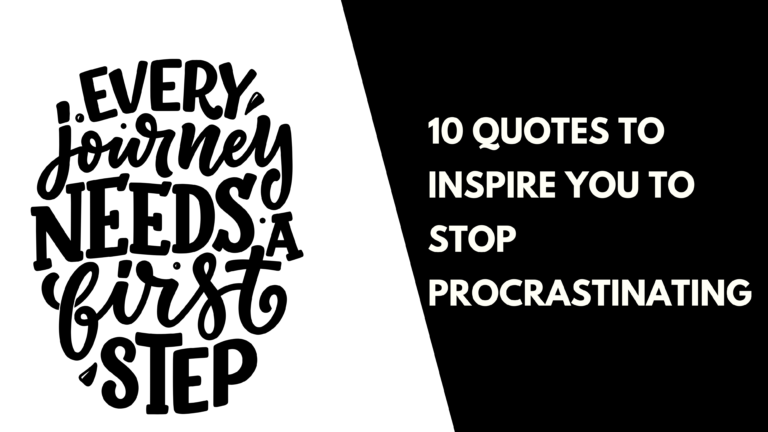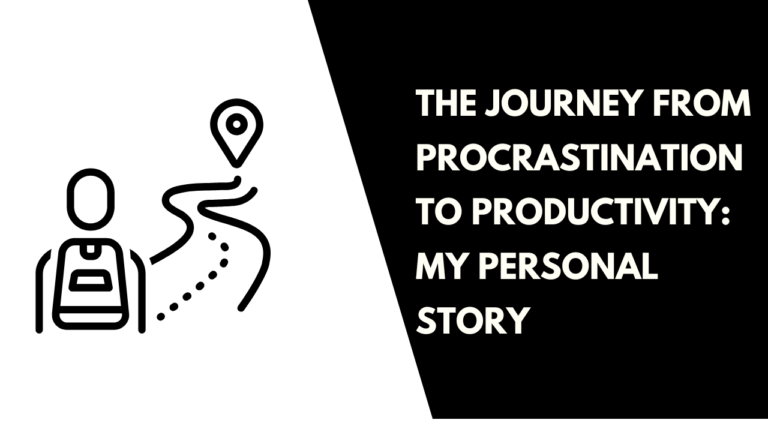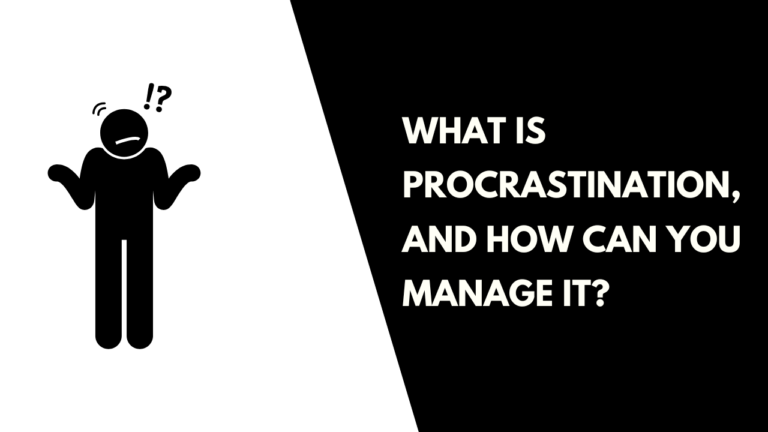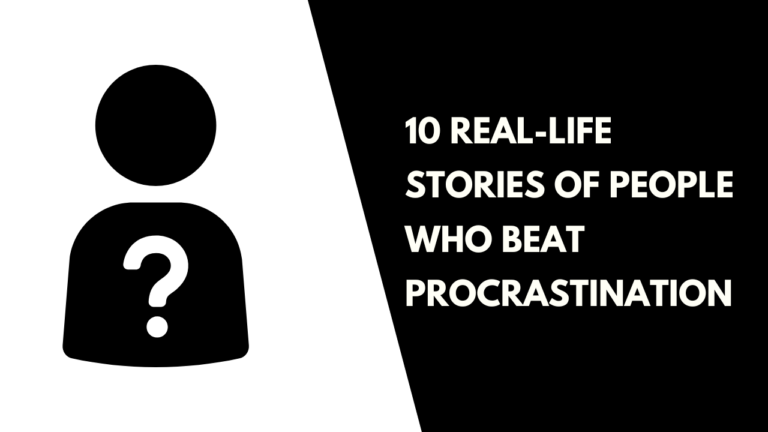How Procrastination Can Be a Teacher (If You Let It)
How Procrastination Can Be a Teacher (If You Let It)
Introduction
Procrastination is often painted as the villain of productivity. It’s the nagging voice that tells you to delay your tasks, indulge in distractions, and worry about the consequences later. However, what if procrastination wasn’t the enemy but a teacher in disguise? What if, instead of fighting it, you embraced it to learn more about yourself and improve your habits?
Table of Contents
ToggleIn this blog post, we’ll explore how procrastination can be a teacher and uncover actionable insights to turn your delays into valuable lessons.
What Does Procrastination Teach Us?
1. Procrastination Reflects Your Priorities
Sometimes, procrastination arises because you’re not fully invested in what you’re supposed to do. For example, during my college years, I frequently delayed working on assignments until the last minute. Upon reflection, I realized these weren’t tasks I genuinely cared about. They didn’t align with my passions or career goals.
💡 Lesson: When you procrastinate, ask yourself, “Why am I avoiding this task?” If it feels unimportant, consider delegating it, simplifying it, or reassessing its value in your life.
2. Procrastination Exposes Underlying Fears
Another significant lesson procrastination can teach you is about fear—fear of failure, imperfection, or even success. During my corporate job, I often postponed preparing for presentations. It wasn’t laziness but an overwhelming fear of not being good enough.
💡 Lesson: Address these fears head-on. Break the task into smaller steps, seek support from colleagues, or remind yourself that progress matters more than perfection.
3. Procrastination Highlights Your Energy Levels
Have you noticed you procrastinate more when you’re tired or burned out? This is your body’s way of signaling it needs rest. Ignoring these signs can lead to further delays and lower-quality work.
For instance, while writing my book From Delay to Done, I often struggled with procrastination after long workdays. It wasn’t a lack of discipline—it was my body demanding downtime.
💡 Lesson: Tune into your natural energy cycles. Schedule demanding tasks when you’re most alert, and reserve low-energy periods for easier activities.
How to Let Procrastination Teach You – How Procrastination Can Be a Teacher
1. Practice Self-Compassion
Instead of berating yourself for procrastinating, pause and ask, “What is this teaching me?” Treat procrastination as a signal rather than a flaw.
Example: When I procrastinated on finishing a chapter of my book, I realized the section lacked clarity. Procrastination nudged me to revisit my outline, leading to a stronger final draft.
2. Use Procrastination as a Time for Reflection
Procrastination often gives you time to think, even if you’re not actively working on the task. Use this time to explore creative solutions or new perspectives.
Example: During a period of procrastination, I brainstormed unique marketing ideas for my book, which I wouldn’t have considered in a rush.
3. Break Down Tasks into Micro-Steps
Procrastination can teach you the importance of simplification. A task may feel overwhelming because it’s too large to tackle in one go.
Example: Instead of “write a book,” I reframed it into smaller, manageable goals like “write 500 words today” or “research for an hour.”
4. Turn Deadlines into Motivators
Procrastination often thrives in the absence of urgency. Setting clear, self-imposed deadlines can help combat this tendency.
Example: I created mini-deadlines for each chapter of From Delay to Done, which helped me stay on track without feeling overwhelmed.
The Positive Side of Procrastination
Many famous thinkers, including Leonardo da Vinci and Charles Darwin, were known to procrastinate. Yet their periods of delay often led to groundbreaking ideas and achievements.
When used constructively, procrastination can:
- Spark creativity.
- Encourage deeper analysis.
- Provide valuable breathing space.
So, the next time you find yourself procrastinating, remember: It’s not about avoiding work but allowing yourself the opportunity to regroup and strategize.
Turning Procrastination Into Productivity
Here are some practical tips to ensure procrastination becomes a teacher rather than a hindrance:
- Adopt the Two-Minute Rule: If a task takes less than two minutes, do it immediately.
- Use the Pomodoro Technique: Work in focused bursts of 25 minutes followed by a 5-minute break.
- Reward Yourself: Celebrate small wins to build momentum.
- Keep a Journal: Document when and why you procrastinate to identify patterns and triggers.
Real-Life Example: My Journey with Procrastination
Writing my first book, From Delay to Done, was no small feat. Procrastination played a significant role in the process, often delaying progress. But instead of seeing it as a setback, I chose to treat it as a lesson.
Every delay taught me something:
- Missed deadlines revealed my perfectionist tendencies.
- Periods of inactivity sparked creative ideas.
- Reflection time helped me refine my content.
Through this journey, I learned how procrastination can be a teacher—a guide helping me align my goals with my values and capabilities.
Conclusion: Embrace the Lessons of Procrastination
Procrastination isn’t inherently bad. When approached with curiosity and self-compassion, it becomes a powerful teacher, revealing your priorities, fears, and habits.
The next time you catch yourself procrastinating, don’t panic. Instead, ask:
- What is this trying to teach me?
- How can I turn this delay into an opportunity for growth?
Remember, how procrastination can be a teacher depends on your willingness to learn. Embrace it, and you might just discover new ways to unlock your potential.
“Stop postponing your dreams! From Delay to Done is your ultimate guide to conquering procrastination. Grab your copy today on Amazon!
